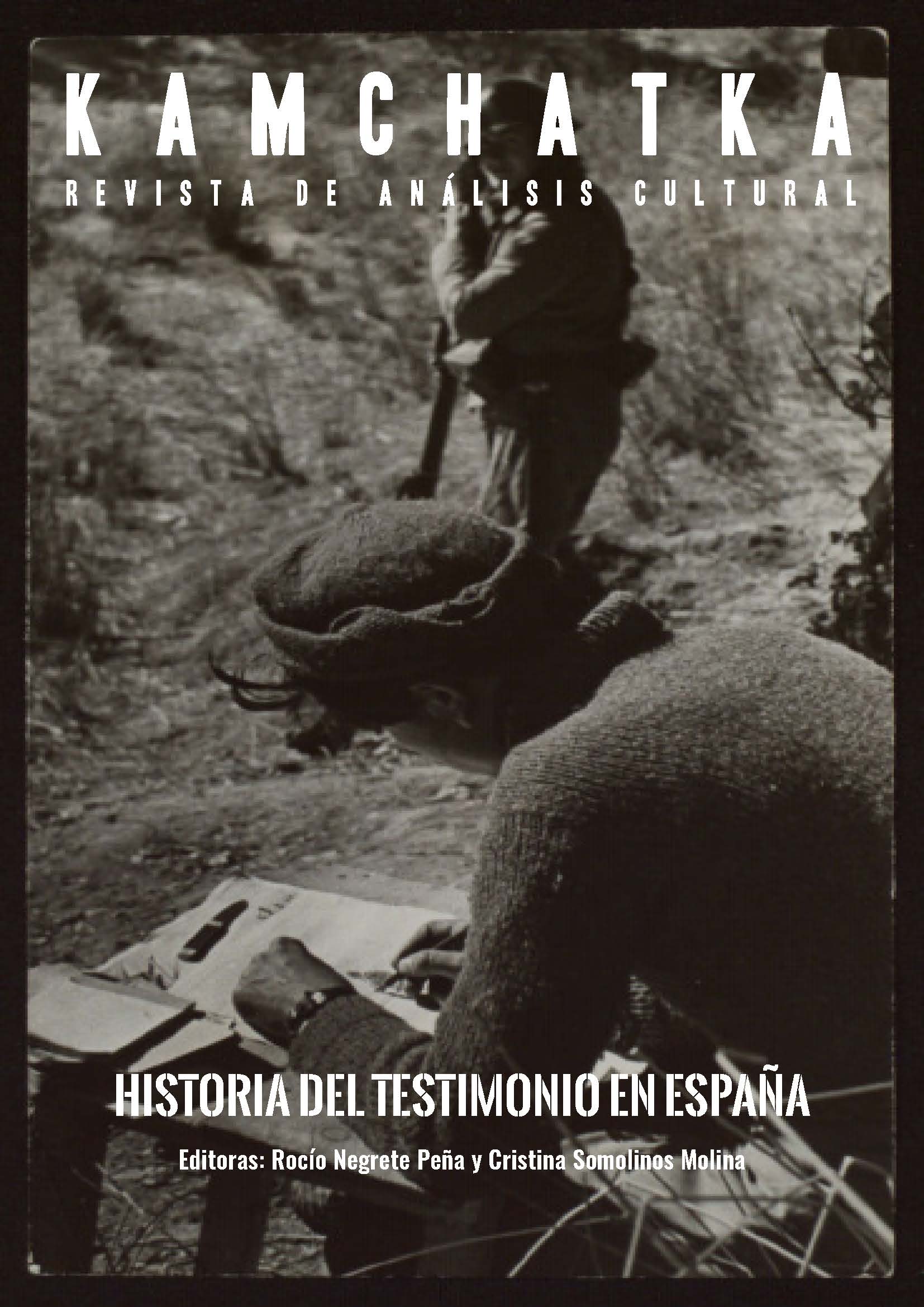Editing and censorship in the testimonial narrative about the french concentration camps published in Spain at the end of Franco
DOI:
https://doi.org/10.7203/KAM.21.25179Keywords:
testimonies, concentration camps, Republican exile, Francoism, publishing Abstract
Abstract
The article intends to make a contribution to the study of the testimony in Spain from the consideration of two volumes belonging to the corpus of the testimonial narrative about the exodus of 1939, the French concentration camps and the exit to exile, written by two surviving authors of these experiences, Avel•lí Artís-Gener and José Bort-Vela. His two works, La diáspora republicana (1975) and La angustia de vivir (1977) respectively, demonstrate a persistent tension between two forces that strive for meaning: on the one hand, the one promoted by authors and publishers, representatives of the republican collective, who try to restore their own version of the past of the Civil War and the concentration camps; and on the other, the strength of the Franco Regime, represented by the institution of censorship, which until the last moment imposed its control and its conservative rules to reproduce a rhetoric that would distance it from its responsibilities regarding the fate of the exiles or else, that accentuate their defeat.
 Downloads
Downloads
 References
References
Aguilar Fernández, Paloma (2008). Políticas de la memoria y memorias de la política. Madrid: Alianza.
Artís-Gener, Avel•lí (1975). La diáspora republicana. Barcelona: Euros.
Bort-Vela, José (1977). La angustia de vivir. Memorias de un emigrado republicano español. Madrid: Ediciones de la Revista de Occidente.
Carrasco, Bel. “Memorias de exilio”. Tiempo de historia III, 33 (1 de agosto de 1977), 126.
Casals i Couturier, Montserrat (1991). Mercè Rodoreda. Contra la vida, la literatura. Barcelona: Edicions 62.
Escamilla, David y Finestres, Jordi (2001). L’univers Tísner. 1912-2000: gairebé un segle. Barcelona: Angle.
Ferran de Pol, Lluís (09/01/1976). “Carta a Avel•lí Artís-Gener”. Archivo Avel•lí Artís-Gener, Biblioteca Nacional de Cataluña (inédita).
Ferran de Pol, Lluís (17/01/1976). “Carta a Avel•lí Artís-Gener”. Archivo Avel•lí Artís-Gener, Biblioteca Nacional de Cataluña (inédita).
Larraz, Fernando (2014). Letricidio español. Censura y novela durante el franquismo. Gijón: Trea.
Llanas, Manuel (2006), L’edició catalana: el segle XX (1939-1975). Barcelona: Gremi d’Editors de Catalunya.
Mainer, José Carlos y Juliá, Santos (2000). El aprendizaje de la libertad. Madrid: Alianza.
Mas i Sañé, Sílvia (2008). Les novel.les d’exili d’Avel•lí Artís-Gener. Barcelona: Publicacions de l’Abadia de Montserrat.
MC/FEC (2016). “Artís-Gener, Avel•lí”. Aznar Soler, Manuel y López García, José Ramón (Eds.). Diccionario biobibliográfico de los escritores, editoriales y revistas del exilio republicano de 1939. Tomo 1. Sevilla: Renacimiento: 211-214.
OG (2016). “Bort-Vela, José”. Aznar Soler, Manuel y López García, José Ramón (eds.). Diccionario biobibliográfico de los escritores, editoriales y revistas del exilio republicano de 1939. Tomo 1. Sevilla: Renacimiento: 408-409.
Oliver, Maria Antònia (septiembre de 1993). “Avel•lí Artís-Gener, Tísner”. Avel•lí Artís-Gener “Tísner”. Suplement mensual de Crònica d’Ensenyament. Barcelona: Generalitat de Catalunya: 6-13.
Simón, Paula. “Catalan editions as a form of resistance. Publication of testimonial narrative about French concentration camps in Catalan during Francisco Franco dictatorship”. International Journal of Iberian Studies 34, 2, 1 (junio 2021): 151-170 .
Downloads
Published
How to Cite
-
Abstract704
-
ARTÍCULO PDF (Español)441
Issue
Section
License
This journal provides an immediate free access to the content on the principle that freely make investigation available to the public, which promotes an increased global knowledge exchange.
Unless otherwise indicated, texts published in this journal are under the license Attribution-NonComercial 4.0 by Creative Commons. These texts may be copied, distributed and publicly communicated whenever the publication’s author and title are quoted and whenever they are not used for commercial purposes. In any case, intellectual property of the articles and its potential economic rights entirely belong to its authors.
The full license can be consulted on https://creativecommons.org/licenses/by-nc/4.0/. We encourage authors to disseminate papers published in Kamchatka. Journal of cultural analysis electronically, in institutional digital repository or in their websites.





